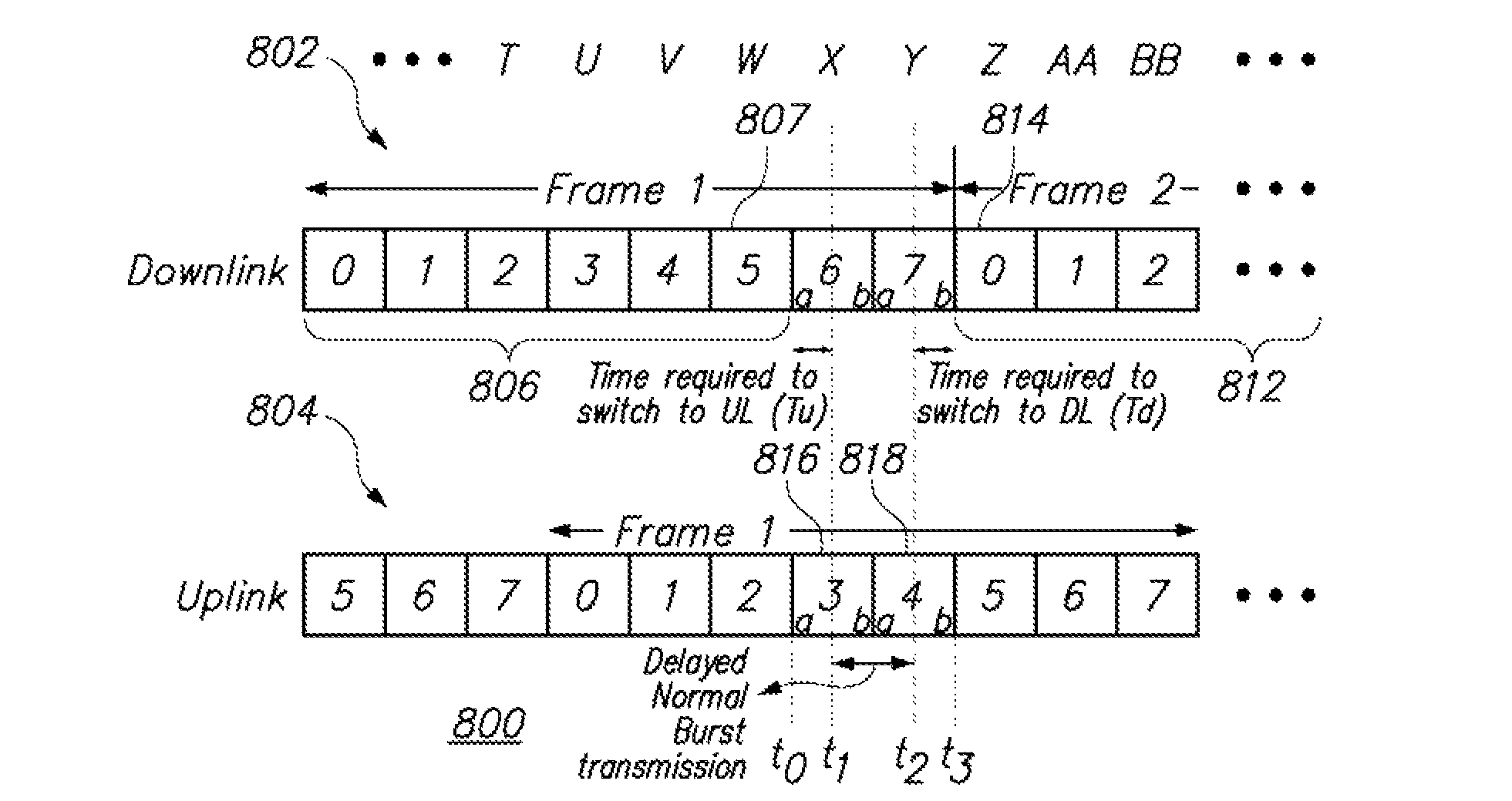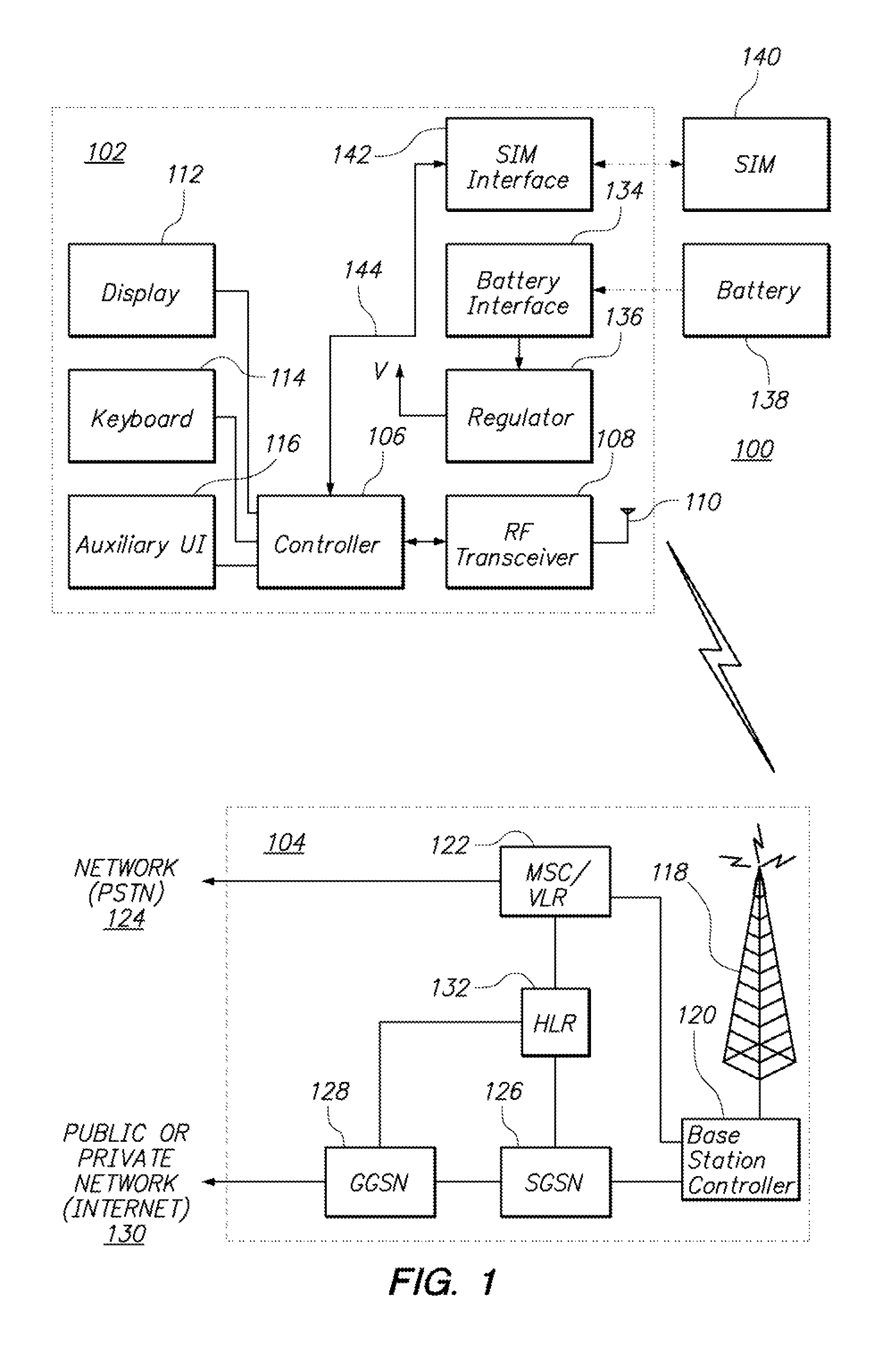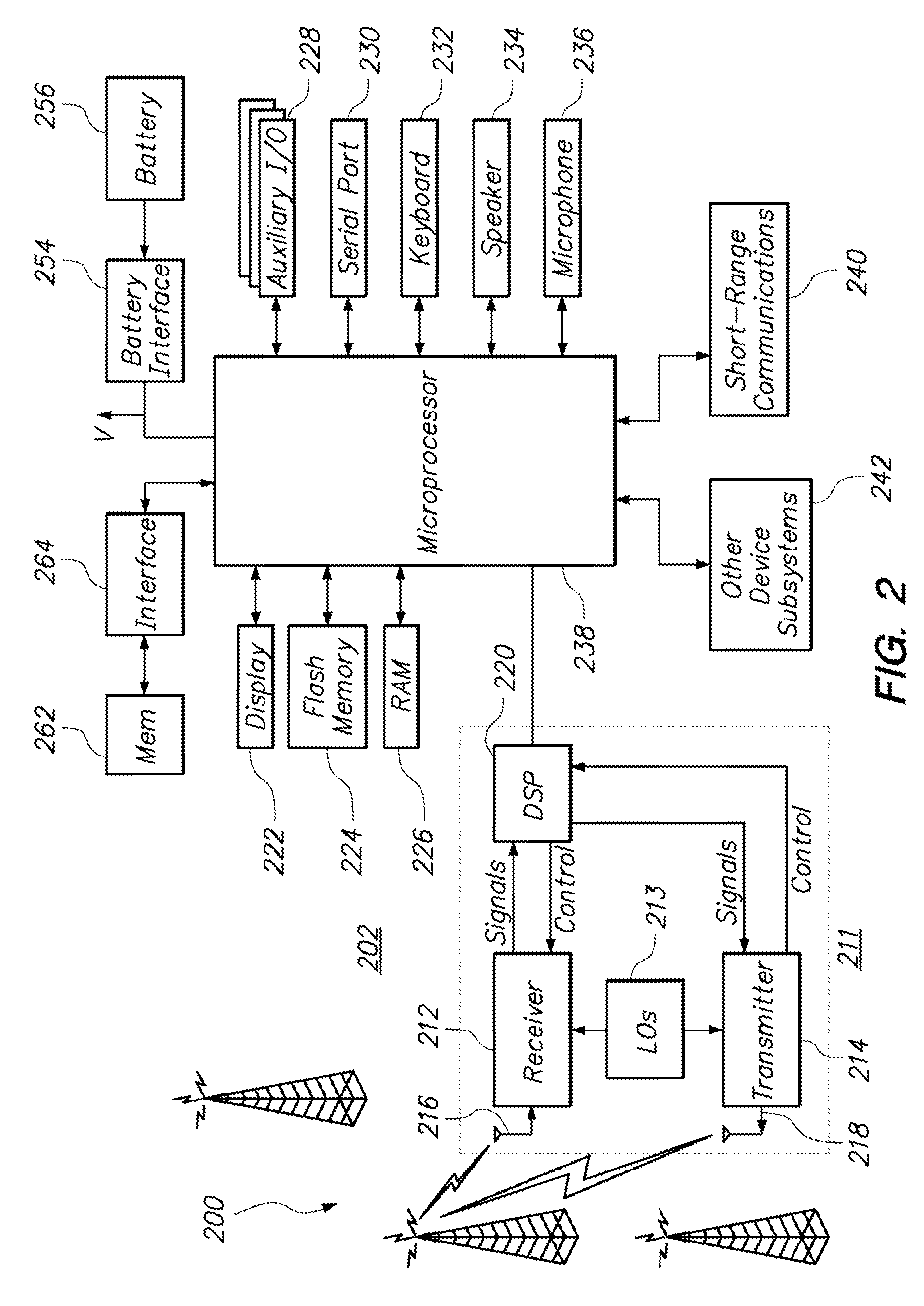Data burst communication techniques for use in increasing data throughput to mobile communication devices
a mobile communication device and data burst technology, applied in data switching networks, multiplex communication, loop networks, etc., can solve the problems of inability to achieve data burst burst burst burst burst burst, limiting their operation to half-duplex, and unable to achieve data transmission proper formatting within the uplink time slot b>414/b>
- Summary
- Abstract
- Description
- Claims
- Application Information
AI Technical Summary
Benefits of technology
Problems solved by technology
Method used
Image
Examples
Embodiment Construction
Methods and apparatus for use in increasing data throughput to mobile stations in a wireless communication network, where data is communicated between mobile stations and the wireless network in a plurality of data bursts within time slots assigned to the mobile station, are described herein. One illustrative method includes the acts of receiving, through a wireless transceiver, data in a time slot W; tuning the wireless transceiver, during a first portion of a time slot X which follows the time slot W, for transmission; reading transmit data from a transmit data queue and encoding the transmit data in a data burst in accordance with a data burst format; and causing the encoded transmit data to be transmitted in the data burst during a second portion of the time slot X. In one approach, a predefined data burst format of the wireless communication system has a length corresponding to a time duration of a given time slot in the wireless communication system, and the encoding of the tr...
PUM
 Login to View More
Login to View More Abstract
Description
Claims
Application Information
 Login to View More
Login to View More - R&D
- Intellectual Property
- Life Sciences
- Materials
- Tech Scout
- Unparalleled Data Quality
- Higher Quality Content
- 60% Fewer Hallucinations
Browse by: Latest US Patents, China's latest patents, Technical Efficacy Thesaurus, Application Domain, Technology Topic, Popular Technical Reports.
© 2025 PatSnap. All rights reserved.Legal|Privacy policy|Modern Slavery Act Transparency Statement|Sitemap|About US| Contact US: help@patsnap.com



